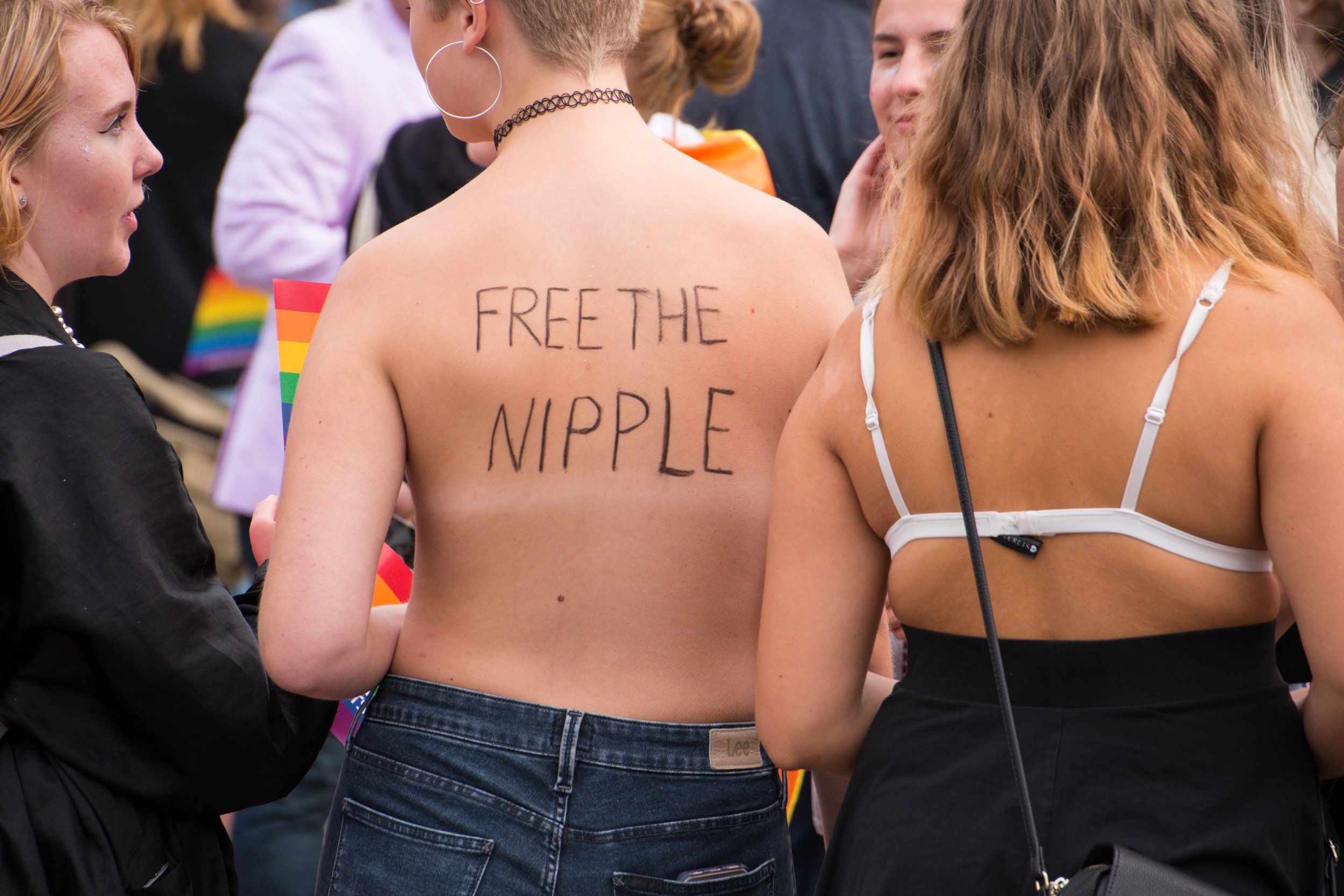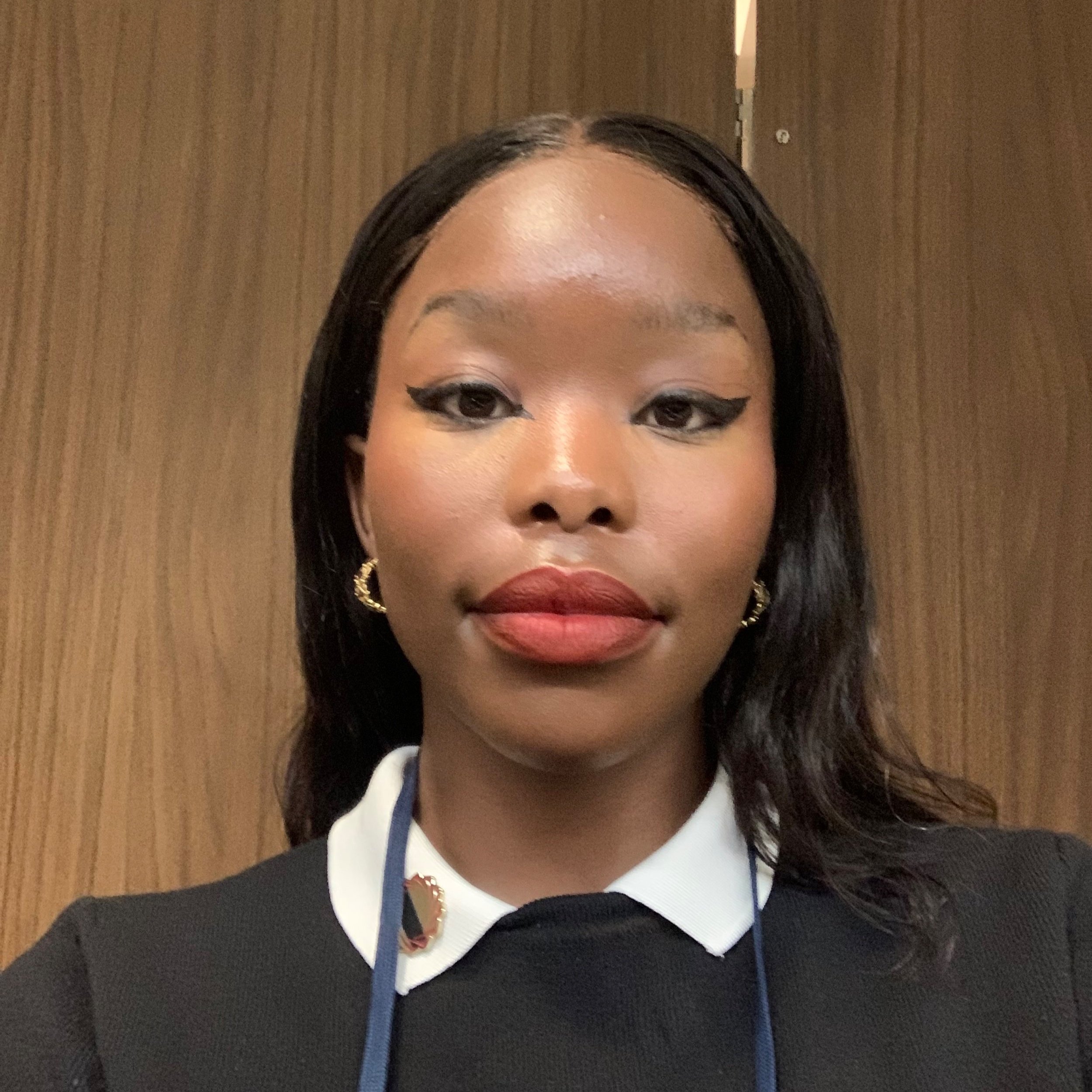Evaluating the absence of inclusive representation in a movement that claims to empower all women.
Activists march for #FreeTheNipple. Maria Eklind. CC BY-SA 2.0 DEED
#FreeTheNipple is a movement that aims to spread awareness about the sexualization of women’s bodies. Its very mission is to point out the hypocrisy in the sexist laws that police women’s bodies. Common tactics at protests involve topless rallies and marches at well-known government monuments and social spaces, including social media.
The movement has gained traction, with celebrity personalities like Cara Delevingne, Kendall Jenner and Amber Rose voicing and — bare-chested — showing their support. It got more attention as some French female protestors would come shirtless to non-feminism related protests. The most notable incidents of this occurred during solidarity protests for Ukraine in response to Russia’s invasion.
Though a noble initiative, many scholars question who the movement represents, and whether it is inclusive of all women. While some agree with its efforts to desexualise women’s bodies through legislation, others call into question the strategy’s efficacy in actually changing the day-to-day lives of women in the United States and around the world. Some challenge its relative homogeneity, while others still commend its innovative radicalism.
One recurring criticism from afro-feminist advocates in this movement is that, for centuries, black women have been disproportionately exploited and sexualised. In Southern African cultures, the exposure of women's breasts was normalised long before liberal white feminists began advocating toplessness. Despite this history, many black women feel that there is a decolonial aspect to this movement that is not being spoken about enough.
Some also claim that the movement has excluded the bodies of trans women. The Guardian and Reuters have released articles stating that many thinkers have critiqued it for that same reason.
According to writers like bell hooks, this marginalisation is not a new phenomenon. Black women intellectuals have been excluded from feminist discussions since the formation of the suffragette movement. While Black women fought alongside white women for suffrage, they were ultimately disposed of once their utility to the movement was no longer needed.
Numerous articles share the sentiment that, if western feminism wants to evolve and effect systemic and societal change, it must move beyond the exclusion perpetuated by its forebears. Additionally, in advocating for the freeing of nipples, we must question how and why white supremacist patriarchies have shackled all types of nipples, including those of black, white, brown people.
The #FreeTheNipple movement is similar to the suffragette movement, in that many people laud its contribution to the bolstering of women’s rights. However, others feel it is important to recognize its limitations and the ways it perpetuates exclusion.
The #FreeTheNipple Movement has made many ripples in the most recent waves of feminism. Through drawing parallels to the suffragette movement, its biggest fans and most ardent critics demonstrate how the feminist forms of protest have evolved.
To Get Involved:
Here Are Some Resources
PSA Tackles Breast Cancer Awareness and Freeing the Nipple in One Brilliant Video. Breast cancer awareness group MACMA tackled social media's "no female nipples" policy creatively. In a video, a topless woman with obscured nipples demonstrates breast self-exams on a topless man, addressing breast health for all genders. The campaign, named #ManBoobs4Boobs, cleverly conveys an important message while navigating platform restrictions.
Free the Nipple: The History of A Hidden Movement
The "Free the nipple" movement, about a decade old, aims for gender equality and body acceptance. Originating from the 2012 film "Free The Nipple," it protests censorship and double standards regarding male and female nudity. The movement sparked global protests, legal battles, and discussions about artistic expression, especially on social media platforms like Instagram. Despite some victories, challenges persist, emphasising the ongoing need for body equality.
Will Instagram Ever Free The Nipple?
The article discusses the #Freethenipple movement on Instagram, where artists creatively challenge the platform's ban on female nipples in photography. Despite discussions with Instagram, the ban remains due to cultural and consent concerns. The article explores artists' strategies to navigate these limitations.
Khahliso Myataza
Khahliso is studying Cognitive Sciences and African Studies at Wellesley College and MIT. At Wellesley, she is the Political Chair of Ethos, and the Lecture Head for the Wellesley African Students Association. She is the standing CEO of the Conscious Campaign - a youth-led organization that aims to spread awareness about social justice issues in South Africa. On social justice projects she has worked with the United Nations and the African Union.


